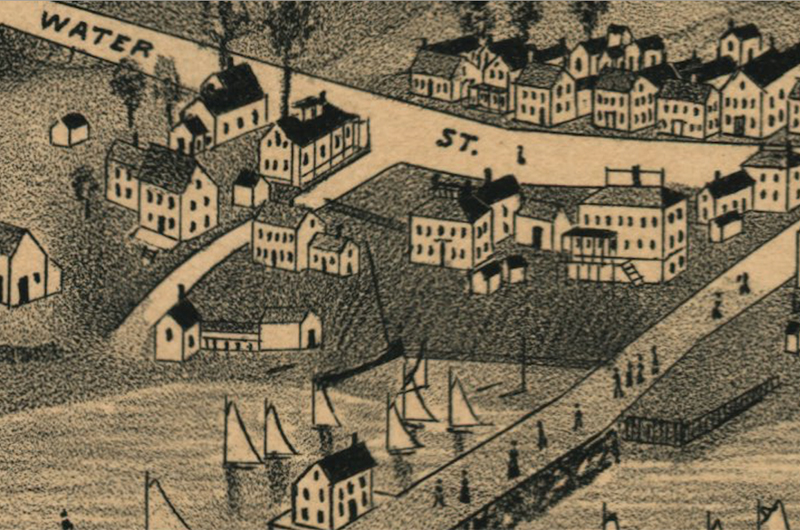The Federated Church in Edgartown won a legal victory this week in a knotty case over its ownership of the South Water street parsonage that was willed to the church more than 60 years ago.
Barring a further appeal, the decision by the Massachusetts Court of Appeals could clear the way for the church to sell the harborfront Mayhew Parsonage, which has an assessed value of $12 million.
But Bruce Lewellyn, a member of the church council and assistant moderator who has helped oversee the litigation, said the church has no immediate plans to sell the property, which is home to the church minister and has been used continuously as a parsonage through the years.
“What we set out to do was to clear our title,” Mr. Lewellyn said by phone on Wednesday.
The parsonage at 75 South Water street is located a block away from the church meetinghouse on South Summer street. The property was originally the homestead of Thomas Mayhew Jr., who founded the church in 1642 and was its first minister. The federal style home with a hip roof dates to the early 1820s, and directly overlooks the Edgartown harbor.
Sara Joy Mayhew, a descendant of Thomas, bequeathed the home to the church when she died in 1956 on the condition that it be used as a parsonage for the minister or “for other church purposes.” In the event it stopped being used for church purposes, the will stated, its ownership would revert to the Society for the Preservation of New England Antiquities, now known as Historic New England.
Although there was no dispute that the church was still using the house for church purposes in 2016, the church went to court seeking clarification that it now owned the property outright and was allowed to sell it. In 2018, the Hon. Gary A. Nickerson, an associate justice of the superior court, declared that the church owned the property “in fee simple absolute.”
Historic New England later appealed the summary judgment.
In affirming the Nickerson ruling, the Hon. Joseph Ditkoff of the Massachusetts Appeals Court court relied on a 1961 law that changed a key clause in what is known as the “rule against perpetuities.” That rule generally holds that a condition in a will that is not activated within 30 years automatically expires. Until 1961, however, the law in Massachusetts made an exception to the 30-year expiration in cases where both the present owner and the potential future owner were charities. The 1961 amendment eliminated that loophole for charities.
“Notwithstanding that in 1956 Historic New England acquired a contingent future interest in the homestead property which was enforceable indefinitely, subsequent legislation has modified the duration of that interest,” the appeals court found.
Sara Joy Mayhew and her younger sister Bertha were among the last descendants of Thomas J. Mayhew. Bertha died in 1955, leaving her estate to Sara, who died the following year at the age of 89.
In her will, she gave all her property to the church, then known as the Edgartown Congregational Church, “in memory of Thomas Mayhew Jr., and Governor Mayhew and the Mayhew preachers in later generations who dedicated their lives to the Christian ministry.”
In an editorial following her death, the Gazette called it a “munificent legacy, and one likely to have a large influence in years to come.”
Mr. Lewellyn, who is a retired attorney, said while Ms. Mayhew had the rare foresight to allow the use of the parsonage to generate income for the church, the lack of clear ownership eventually became a potential burden. For example, he said without clear title the church could not borrow money to renovate the house, using it as equity for a loan.
“It’s a lovely old piece of property but it doesn’t take care of itself,” Mr. Lewellyn said. But any proposal to sell the house would first need to be brought before the congregation for a majority vote, he said, citing the rules of Congregational churches which are governed by their permanent members.
“Whether we keep it or do something else with it is something we would have to discuss,” he said.






Comments (2)
Comments
Comment policy »